Campervan electrics- 12V circuit is a system of wiring campervan batteries to charge the battery bank, control battery voltage, and power various electrical devices.
A campervan is a great way to travel and enjoy the outdoors, but it can be a hassle to maintain electrical appliances while you’re on the go. That’s where 12V circuits come in – specifically designed for campervans and other recreational vehicles. As we all know, a campervan is a great way to travel and explore new places.
But you probably don’t know how to connect your campervan’s 12V circuit in case. An emergency will tell you everything you need to know about campervan electrical wiring – from what a camper van battery bank is and how it works to installing it in your campervan.
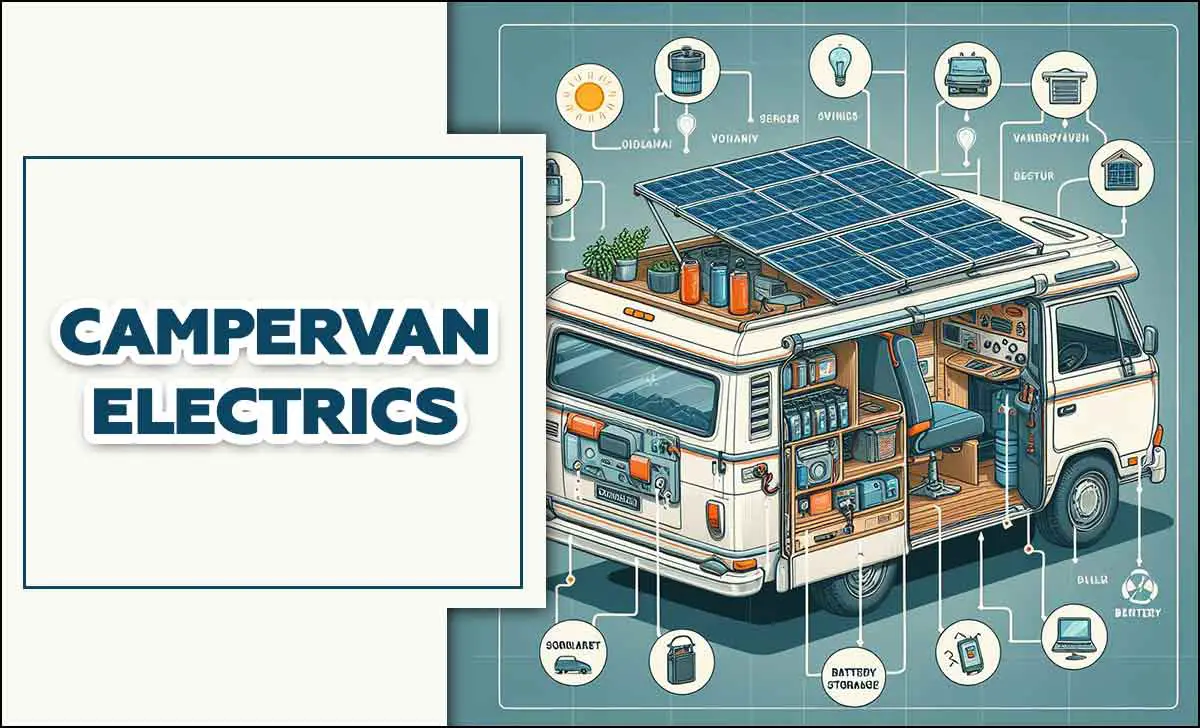
What Is A Camper Van, And What Does It Consist Of?
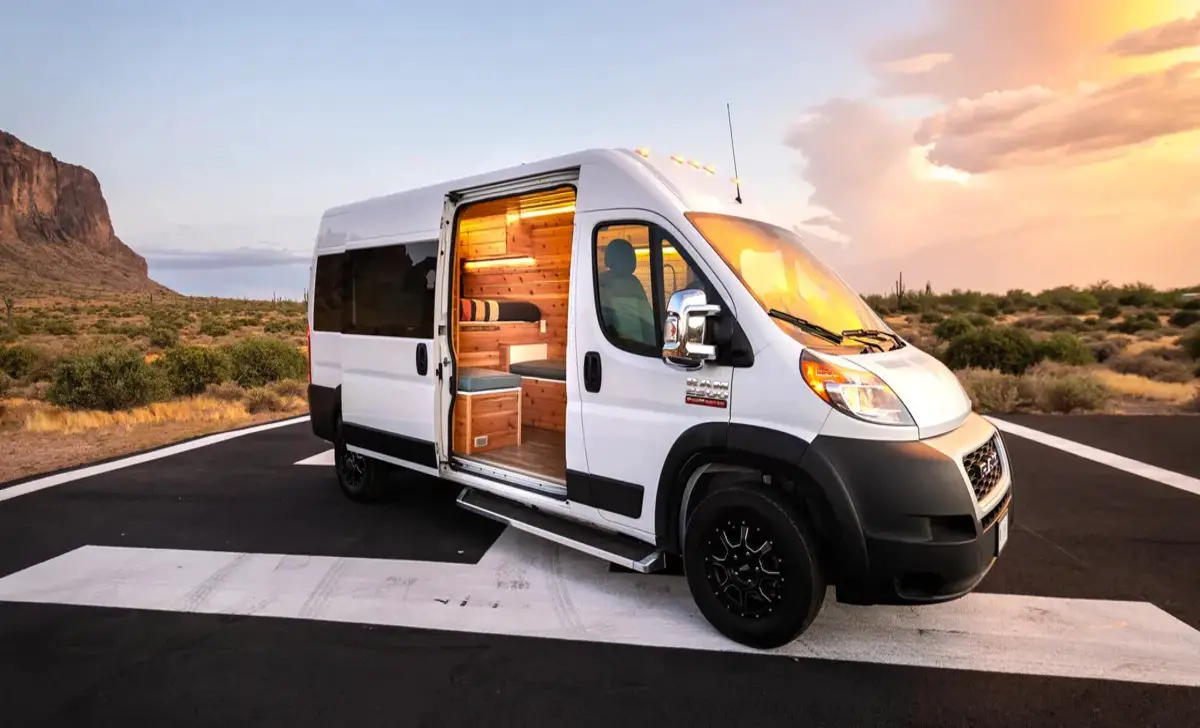
A camper van is a camping vehicle and a temporary dwelling. It has a 12-volt electrical system that powers the appliances in the van. When hiring a camper van, it’s important to check whether your camper van has an adapter for your electrical needs.
This will ensure that you have access to power from the battery system of your motor vehicle. Additionally, you must follow some simple tips for wiring a camper van. These include wiring the battery, inverter, and accessories in a way that makes sense and avoiding battery Acid- Rainwater can corrode battery terminals and damage batteries.
Camper Van Electrics- 12V Circuit Explained In 11 Simple Steps

A camper van’s electrical system comprises solar power, battery power, fuses, circuit breakers, wiring, and electrical components. There are two main electrical systems used in camper vans- a 12V system and a 24V system. In a 12V system, a solar power panel is used as the main power source for the van.
Solar panels are fitted with batteries to store electrical energy during the day. This solar panel can charge a battery using solar power. A fuse panel is also used to prevent the formation of short circuits in electrical wiring. It consists of fuses that can prevent fire or damage to electrical wiring.
The circuit breaker panel prevents electrical current from flowing when the voltage is too high or too low. However, The most common problem with this circuit is that it can become overloaded when there’s too much demand on it at once. This can lead to problems like broken electronics or even a fire in the van. To prevent this from happening, it’s important to keep the circuit balanced and managed properly. Here are 11 simple steps you can take to do just that:
1.Understanding Camper Van Electrics
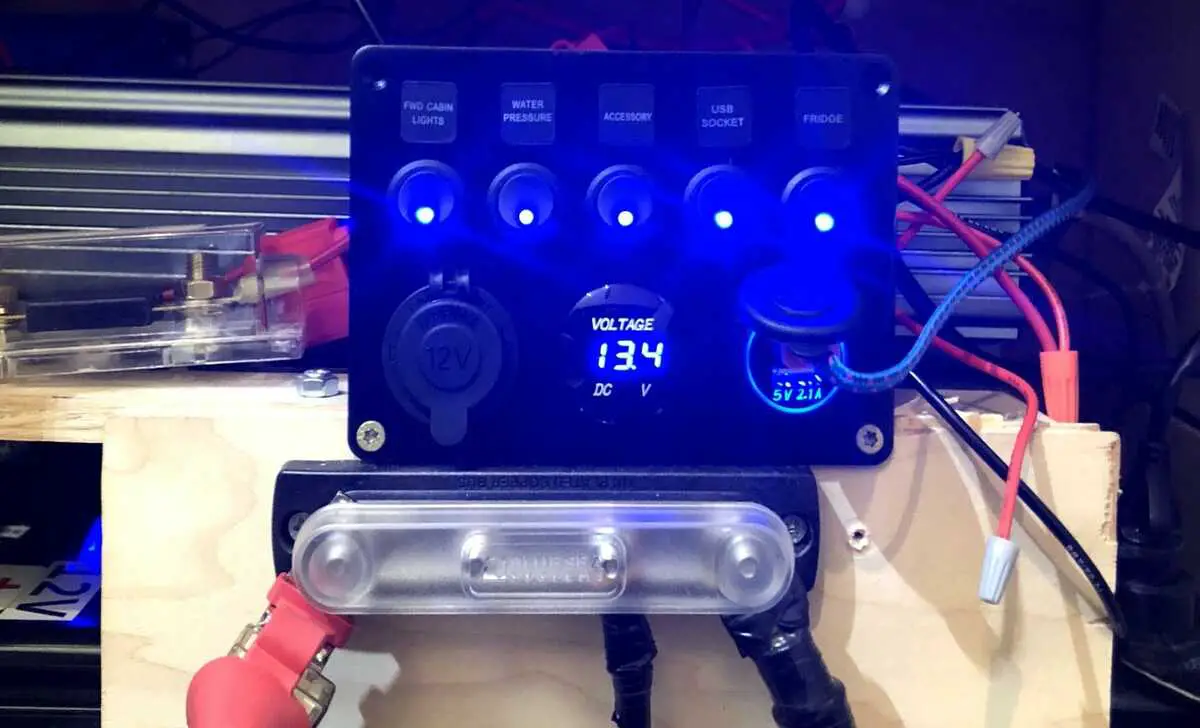
A camper van is a great choice for people who want to travel in style. It can be equipped with a variety of electrical systems to accommodate a variety of needs. A 12V circuit is required for most of the systems on a camper van, and understanding how to wire a camper van’s electrical system can save you time and hassle.
When hiring a camper van electrical system, it’s important to use the right fuses and wiring accessories based on the system you are wiring. For example, power inverter wiring accessories can help you safely plug into power sources that don’t have 110-volt electrical outlets.
If you’re hiring a camper van electrical system, it’s crucial to use the right fuses and wiring accessories based on the system you are wiring. For instance, power inverter wiring accessories can help safely plug into power sources that do not have 110-volt electrical outlets. Wiring a camper van’s electrical system can be tricky, but it can be easier and safer with the right fuse and accessory choices.
2.Terminology Explained
A 12V circuit is a common electrical system used in a van and camper. It typically consists of a battery, inverter, and outlet. A battery often charges the system via solar panels or shore power. A 12V circuit can be challenging to wire correctly because it provides voltages of 11-13 volts.
The safety of a 12V circuit depends on the voltage output and current draw of the electrical components installed in the camper van. It’s important to follow wiring diagram instructions carefully to ensure you don’t accidentally overload circuits or plug into an inverter instead of an outlet. Additionally, checking voltage levels before plugging in electrical devices is important to avoid serious accidents. This guide covers the basics of how a 12V circuit works and provides tips for installing and wiring it properly.
3.Figure Out Electrical Requirements
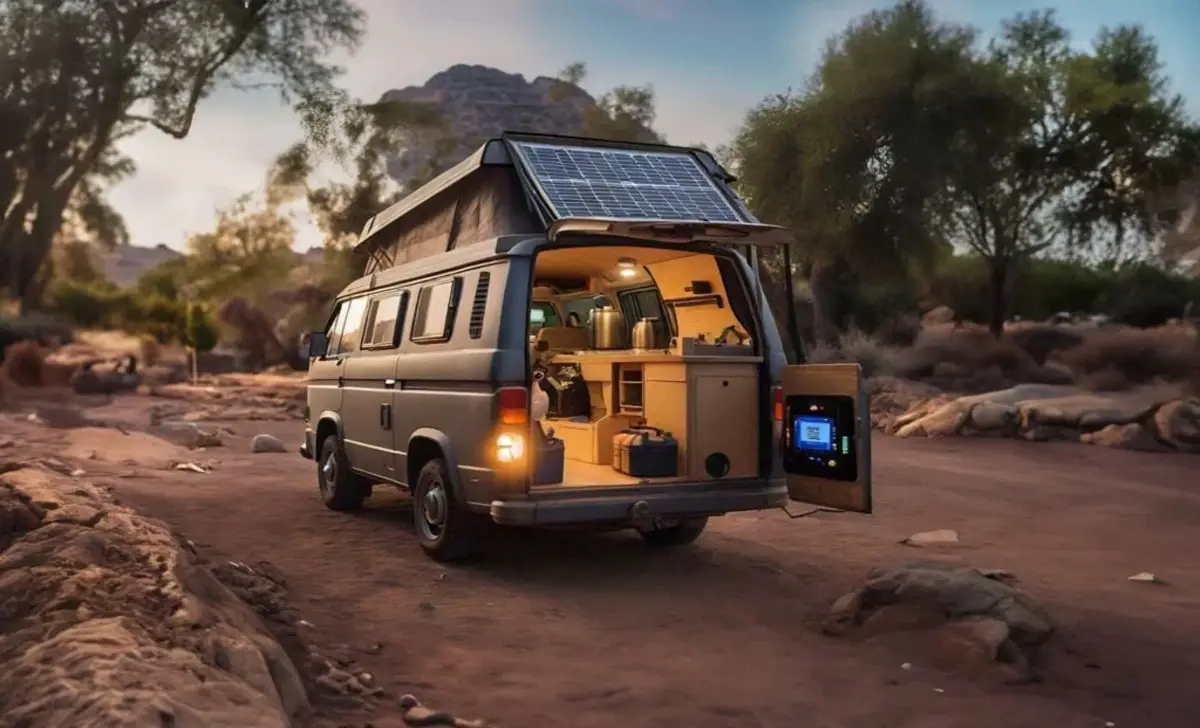
When choosing camper van electrical accessories, check your camper van’s electrical system requirements. For example, you must ensure that your camper van has a battery and a 12V outlet for electrical power accessories. Some commonly-used electrical components for camper vans include a battery, a 12V outlet, and a converter.
You can power most common household appliances with a 12V outlet and battery. If you plan to use solar power or charge batteries for electrical storage, consider a solar panel charger or a voltage-regulating battery charger. These accessories allow you to power your camper van with solar power or from the battery bank when needed.
4.Calculate The Power
To calculate how much power you will need for your camper van electrics, keep a few things in mind. First, you will need to consider the size and weight of your camper van as well as the appliances you plan to use. Next, you will need to estimate the wattage of each appliance and calculate the total wattage.
Finally, you will need to find a power outlet that can handle the total wattage of your system. These steps will help you determine the wattage requirement for your camper van’s electrical system. When calculating power requirements for camper van electrical systems, it’s important to consider all its components and how much power each one requires.
5.Battery Specifications
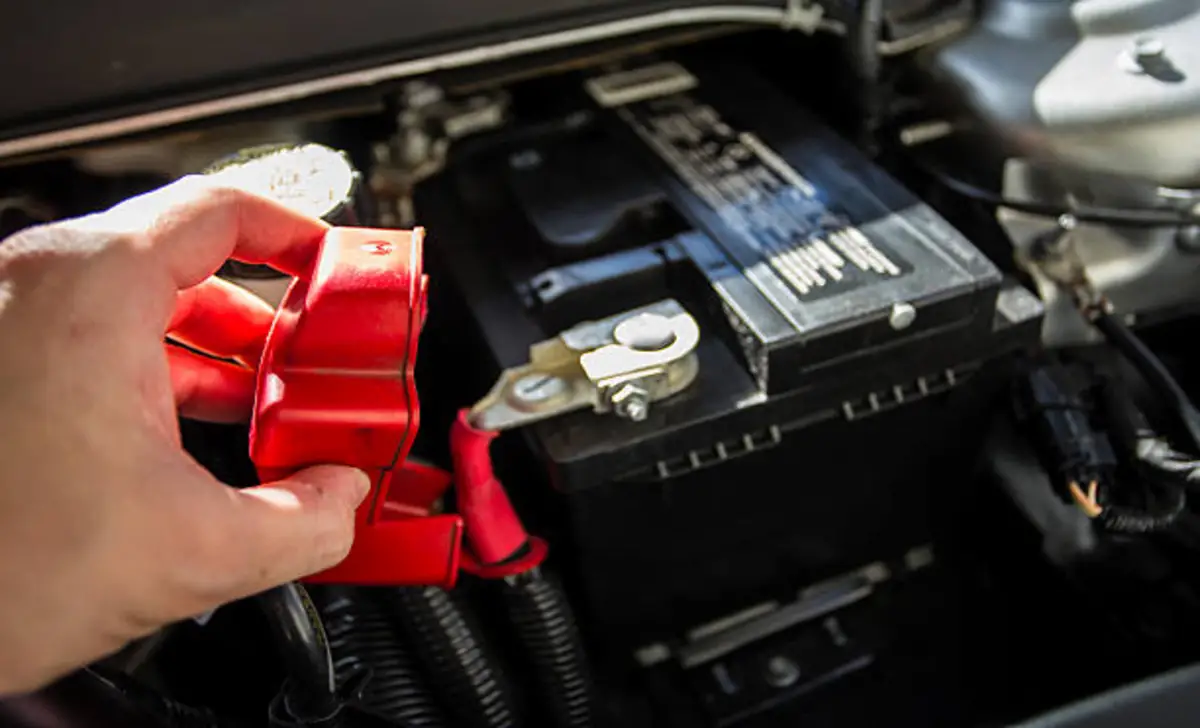
A camper van’s electrical system requires a battery to power the electrical system. You should choose the size and voltage of the battery based on the camper van’s electrical requirements. The camper van’s electrical system requires a 12V battery to power it. This battery should be of sufficient size to supply the necessary current. We must note that we cannot discharge a battery below its minimum voltage.
Otherwise, it may not be able to start the engine. In addition to providing electrical power, a battery can store energy for later use. If you plan on using your camper van for other purposes, such as powering a refrigerator or lights, consider investing in a multi-purpose battery that can handle multiple tasks.
6.Charging The Batteries
When it comes to camper van electrics, one of the most important components is the battery. Caravan owners can charge their batteries using a 12V DC outlet. The camper van electrics system consists of two main parts: the battery and the inverter. The inverter converts power from the car’s battery into AC electricity, which is used to power all the appliances in the camper van.
To charge the batteries, caravan owners need to connect the charger to the inverter and plug it into an AC outlet. This will ensure that all electrical devices in the camper van can receive power from the battery and inverter. This way, camper van electrics can provide reliable power for daily activities such as cooking, lighting, and heating.
7.Powering AC Devices

There are several ways to power AC devices in a camper van. You can power AC devices using a battery, inverter, or solar panel. Each has advantages and disadvantages, so it’s up to you to find the best option for your van’s electrical needs. Using a battery is the simplest and cheapest option for powering an AC device in a camper van, but batteries can only provide a short-term power supply.
An inverter can convert AC power to 12V, which is useful if you want to use more than one device at a time. You can use solar panels in your van to power AC devices during the day and charge your battery at night. However, solar panels are only sometimes practical or affordable, so it’s good to have other options for charging your van’s battery.
8.Which 12v Devices To Use
You can power a camper van with a variety of 12v devices, including lights, radios, and fans. You must plug some devices into the cigarette lighter socket, and you must use an extension cord for the others. Before you purchase any electrical devices for your camper van, make sure to check the compatibility. Understanding how to safely and effectively power your camper van with 12v circuits is also important. This guide will help you do just that.
In summary, a camper van can run using a wide variety of 12v devices, but certain devices may require different wiring configurations. It’s crucial to research electrical accessories before buying them to ensure they are compatible with your camper van setup. Safe wiring and regular maintenance can help keep your electrical system in shape.
9.Install Camper Van’s Electrical System
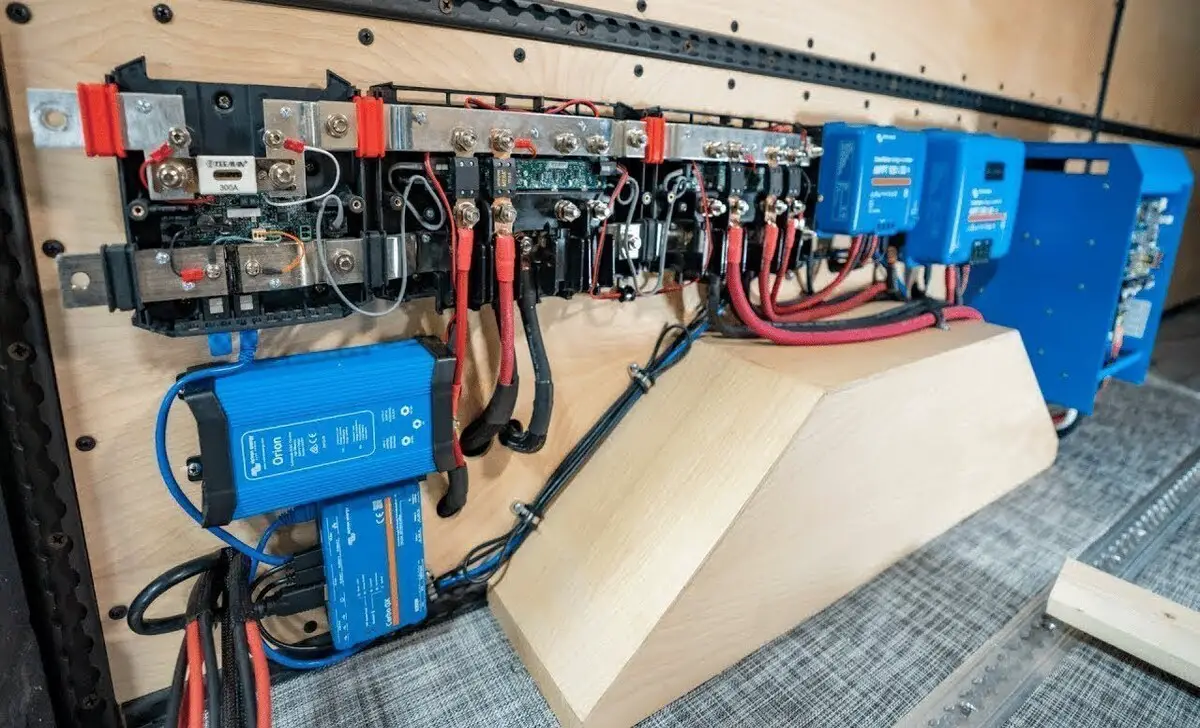
If you plan to install your camper van electrical system yourself, you must take a few steps to complete the installation. First and foremost, you must follow the installation guide carefully to ensure that you know what to expect and how to complete the installation properly.
Additionally, it is important to use a surge protector when connecting electrical components to avoid any potential damage. If you are installing your camper van electrical system yourself, follow these steps, and you can complete the installation successfully.
10.Things To Start Camper Van Electrics

Before wiring your camper van, you will need to purchase some basic electrical equipment. This includes a 12V battery and a charger. You can purchase these at any local automotive store or online. You may also need a voltmeter, wire cutters, and a screwdriver. Once you have all of the necessary equipment, follow these simple steps to install your 12V circuit:
- Check the battery voltage.
- Connect the black wire from the battery to terminal 1 on the charger.
- Connect the red wire from the battery to terminal 2 on the charger.
- Connect the white wire from the charger to any open electrical outlet.
- Turn on the power to the camper van by turning on the switch next to the door.
- The lights inside the camper van should now turn on.
- If everything checks out, disconnect all cables and put everything away safely.
11.Installing A Camper Van Electrical System
A camper van’s electrical system requires a 12V circuit to power all of the electrical components in the van. You can install this circuit in one of two ways: a standard car cigarette lighter or an RCD box. A 12V circuit will also provide power to any accessories connected to it, such as lights and appliances.
This system will ensure that the electrical system of your camper van is fully functional and safe. To power your camper van electrical system, you will need a voltage-regulating adapter (VRA) and fuse or circuit breaker, which you can find in camper van electrical kits.
Closing Thoughts On Campervan Electrics
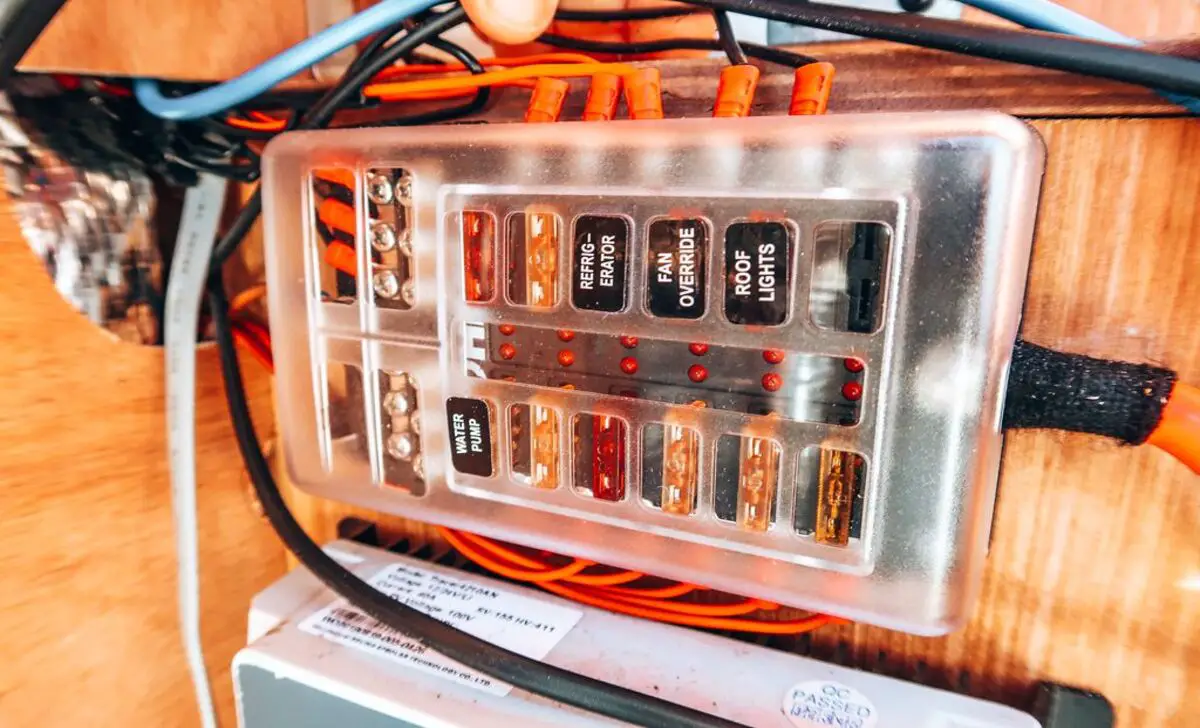
All camper vans have a 12-volt battery, which powers most electrical systems. A camper van’s electrical system consists of two main circuits – the aux and main. The aux circuit powers things like the air-conditioning, stereo, and lights. The main circuit powers things like the fridge, cooker, and bathrooms.
It’s important to know which circuits are switched on and when to avoid accidentally draining your battery. It’s also important to keep an eye on your battery levels, as over-loading your battery can lead to breakdowns or even fires in the van. So it’s vital to follow campervan electrical safety guidelines when using one.
Conclusion
Campervan electrics can be a fun and frugal way to power up your campervan van batteries. If you’re starting, it can help you charge your campervan van battery without using an inverter or solar panel. With the van battery power, you can power up lights, fans, and other van-friendly gadgets- a 12-volt battery wiring diagram can help.
Campervan electrics are a very important topic that you should be aware of. Not only will this help you to maintain your vehicle in good condition, but it will also ensure that you’re able to use it safely and effectively. Fortunately, there are a few things that you can do to make sure that everything runs smoothly.
Campervan electrics can be a mystery to first-time RV ers, but it doesn’t have to be. This guide has provided you with the basics of 12V circuit wiring in a campervan and explained the different kinds of connectors used. This will help you to avoid any potential electrical problems while traveling in your campervan.
Frequently Asked Questions
1.What Electrical System Is In A Campervan?
Ans: A campervan typically has a 12V electrical system that includes a battery, an inverter, and a cordless phone charger. The battery powers the lights, the inverter converts DC power to AC power, and the cordless phone charger charges the battery. To connect to the mains electricity, a plug adapter is required.
2.How Does A Camper Van’s Electrical System Work?
Ans: A camper van electrical system works by using an alternator to convert mechanical energy into electrical energy. This electrical energy is then used to power various appliances in the camper van, such as the lights, refrigerator, and stove. The battery stores this electrical energy and provides power when the 12V circuit is not using it.
3.How Do You Wire A Camper Van Outlet?
Ans: To wire a camper van outlet, you’ll need first to identify the type of connector your van uses. A 12V circuit is typically wired using a male/female connector. The red wire is connected to the positive terminal on the van outlet, and the black wire is connected to the negative terminal on the van outlet. The white wire is used as a ground wire.
4.How Can I Make Sure That My Electrical System Works Safely?
Ans: Make sure to disconnect your battery when not in use and ensure that all electrical cords are properly secured. Additionally, check your fuses and replace them as needed. Test your electrical system regularly by plugging in the light and turning on the outlet.
5.Which Fuse Should I Use In My Campervan?
Ans: The fuse for the 12V circuit in a campervan is usually located in the dashboard or under the hood. If the fuse blows, it is usually due to a broken wire or a bad ground connection. You will need to replace the blown fuse and wire to fix the issue. To check if there is a ground issue, you can use a voltmeter to test for voltage at various points around the circuit.
